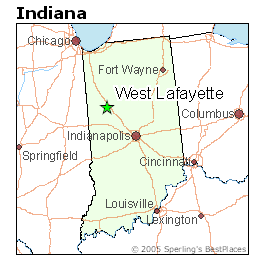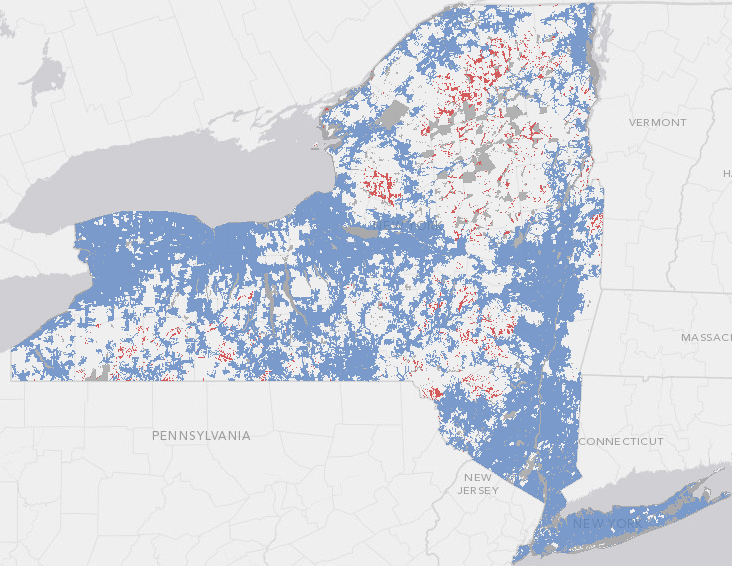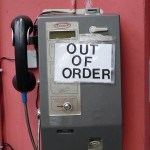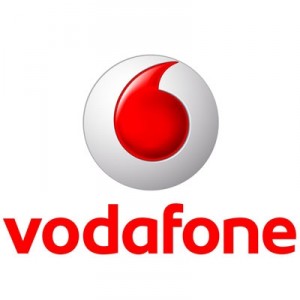 A western Indiana fiber-to-the-home project first envisioned more than five years ago is finally moving forward as it wins unanimous approval at the Tippecanoe County Redevelopment Commission.
A western Indiana fiber-to-the-home project first envisioned more than five years ago is finally moving forward as it wins unanimous approval at the Tippecanoe County Redevelopment Commission.
Lafayette and West Lafayette, Ind., home to prestigious Purdue University, has a broadband problem. Broadband advocates claim current providers Comcast and Frontier Communications underserve Tippecanoe County. The former has put western Indiana on the “long list” waiting for service upgrades, and Frontier Communications offers little more than slow speed DSL in the region. While Purdue arranges for its own Internet connectivity, off-campus students and area residents have had to make due with what the local cable and phone company offers, which isn’t much according to the locals.
“Comcast service has recently improved, but there is a big difference between Comcast service in a city like Chicago and what they deliver this part of Indiana,” shares Stop the Cap! reader Nick Jefferson, who tipped us to the recent developments. “Frontier is a complete waste of time, and they have alienated customers across Indiana after taking over from Verizon Communications.”
In 2005, Tippecanoe County officials met with Verizon to encourage construction of its FiOS fiber-to-the-home network in western Indiana, as it had planned for the eastern Indiana city of Fort Wayne. But Verizon sold off its Indiana landline operations to Frontier Communications, which has since shown little interest in expanding the fiber to the home network it inherited. Now the county is considering financing a fiber network itself, to be ultimately run and administered by Cinergy MetroNet, which already provides service in the Indiana communities of Connersville, Greencastle, Huntington, Madison, New Castle, North Manchester, North Vernon, Seymour, Vincennes, and Wabash.
[flv width=”480″ height=”290″]http://www.phillipdampier.com/video/WLFI Lafayette Ultra-high-speed net may be headed here 3-21-11.flv[/flv]
WLFI-TV explained the basics of the new fiber-to-the-home network and how it will be paid for in this report from March, 2011. (2 minutes)
 The $40-50 million project would not come out of taxpayer funds directly. Instead, a novel financing approach would cover construction costs over a 15-20 year period using a combination of MetroNet investor funds and a “tax increment financing” district, which would provide a temporary tax abatement during the period the network is being paid off. Taxpayer dollars would not be exposed — the financial risks would be to MetroNet and its investors alone.
The $40-50 million project would not come out of taxpayer funds directly. Instead, a novel financing approach would cover construction costs over a 15-20 year period using a combination of MetroNet investor funds and a “tax increment financing” district, which would provide a temporary tax abatement during the period the network is being paid off. Taxpayer dollars would not be exposed — the financial risks would be to MetroNet and its investors alone.
A fiber to the home service would provide a network capable of gigabit broadband speeds, but historically Cinergy has offered lower speeds to their other Indiana customers, albeit at highly competitive pricing, along with packages of video and phone service.
Larry Oates, head of the West Lafayette redevelopment commission for the project, says the fiber network delivers more than just the promise of better broadband service
“This project could be a great economic development tool,” Oates told The Exponent. “It is up to the businesses and residents who live here to decide what to do with it. We are just facilitating their potential.”
The County Commissioners will decide later whether to give the project a final approval.
[flv width=”480″ height=”290″]http://www.phillipdampier.com/video/WLFI Lafayette Tippecanoe County moves forward with plans for Fiber to Home 1-9-12.mp4[/flv]
WLFI in Lafayette reports Tippecanoe’s fiber to the home network has gotten unanimous approval from the country redevelopment commission. (2 minutes)


 Subscribe
Subscribe








